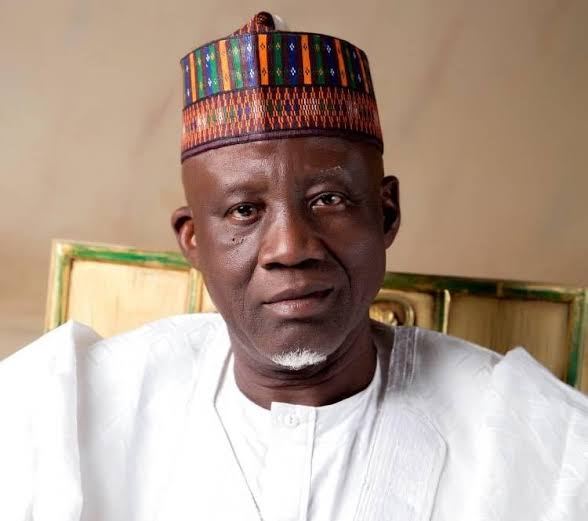Salary increase not enough, comprehensive police reforms needed
Recently, Minister of Police Affairs Maigari Dingyadi announced that the Federal Executive Council (FEC) had approved a 20 per cent increase in the salaries of the men and officers of the Nigeria Police which will take effect from January 2022. The minister further announced that the FEC also approved the review of police shift duty […]

Muhammad Dingyadi
Recently, Minister of Police Affairs Maigari Dingyadi announced that the Federal Executive Council (FEC) had approved a 20 per cent increase in the salaries of the men and officers of the Nigeria Police which will take effect from January 2022.
The minister further announced that the FEC also approved the review of police shift duty tour allowance to 6 per cent in addition to directing the release of N1.2 billion for payment of uninsured benefits.
The approval is a follow up to President Buhari’s promise to improve police personnel pay as part of the demand by EndSARS protesters.
This gesture coming from the federal government, although long overdue, is commendable as Nigerians across the board have been calling for a total review of the working conditions of the Nigeria Police.
It is a well known fact that the working conditions of the Nigeria Police is one of the worst among the security and law enforcement institutions in the country. In addition to poor remuneration, personnel of the Nigeria Police have to cope with poor equipment, logistics and acute lack of accommodation. A visit to any police formation in the country, be it their barracks or stations, will reveal the abysmal state of the Nigeria Police.
Yet the responsibilities that the police have to bear in carrying out their duties towards safeguarding the country from all manner of civil and criminal activities are enormous. Not only do the police have to cope with poor conditions of service, their total number, a little less than 400,000 is hardly enough to cover the vast expanse and 200 million plus population of the country. Indeed it is a fact that over one third of the numbers of policemen in the country are deployed to duties outside their core functions as law enforcement officers. The remainder can hardly cope with the demands of law enforcement duties especially with the heightened scope of insecurity and related crimes that the country is currently facing.
The sum total of this state of affairs affects the sense of morale and motivation that the police should have in discharging their very important duties to the nation.
In this regard, we could not agree more with the remarks of former Inspector General of Police Solomon Arase who said although the gesture by President Buhari in increasing the salaries of police personnel was laudable, it was not enough to solve the enormous problems facing the police. Arase, who said Nigerian policemen are the least paid in sub-Saharan Africa, observed that “increasing the take-home pay alone without improving other things cannot solve the problems of the police in this country. Other things which have to be done include provision of good working environment, decent accommodation, vehicles and modern equipment.’’
Mr Arase’s statement mirrors what most Nigerians feel about the poor conditions of the Nigeria Police and what needs to be comprehensively done to bring the agency up to the level that we all want it to be.
We take note that in this particular case, like other things in the country, it had to take the EndSARS protests for the government to be alive to its responsibilities to the police. Knowing the critical and sensitive role that the police play in securing the country, the government needs not have been put to pressure to implement this measure. It is something that should be periodically reviewed as the demands and challenges of security and law enforcement of which the police plays a central role, is subject to constant changes.
Now that the government has approved this measure, we urge that there should be no delay in implementing it. We recall that in 2018, an announcement was made about increasing the remuneration of the police. But this was not implemented. We hope this new measure will not go the way of the previous one.
We are particularly pleased to note that although the increase was not captured in the provisions of the 2022 budget, the Minister of Finance, Zainab Ahmed, has clarified that it could be covered in a supplementary budget which will be backdated to January 2022, the date of its roll out.
As for the police, we call on them to look at this gesture from the government as a challenge to spur them to greater improvement in discharging their duties. This is particularly necessary as the country gets set to enter a critical period of elections and other national activities like the census all with their attendant security demands and challenges.
